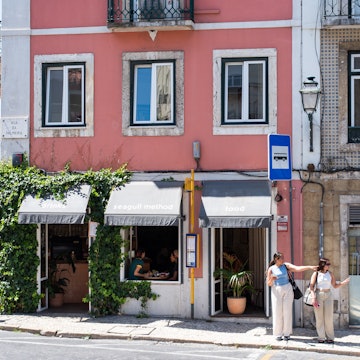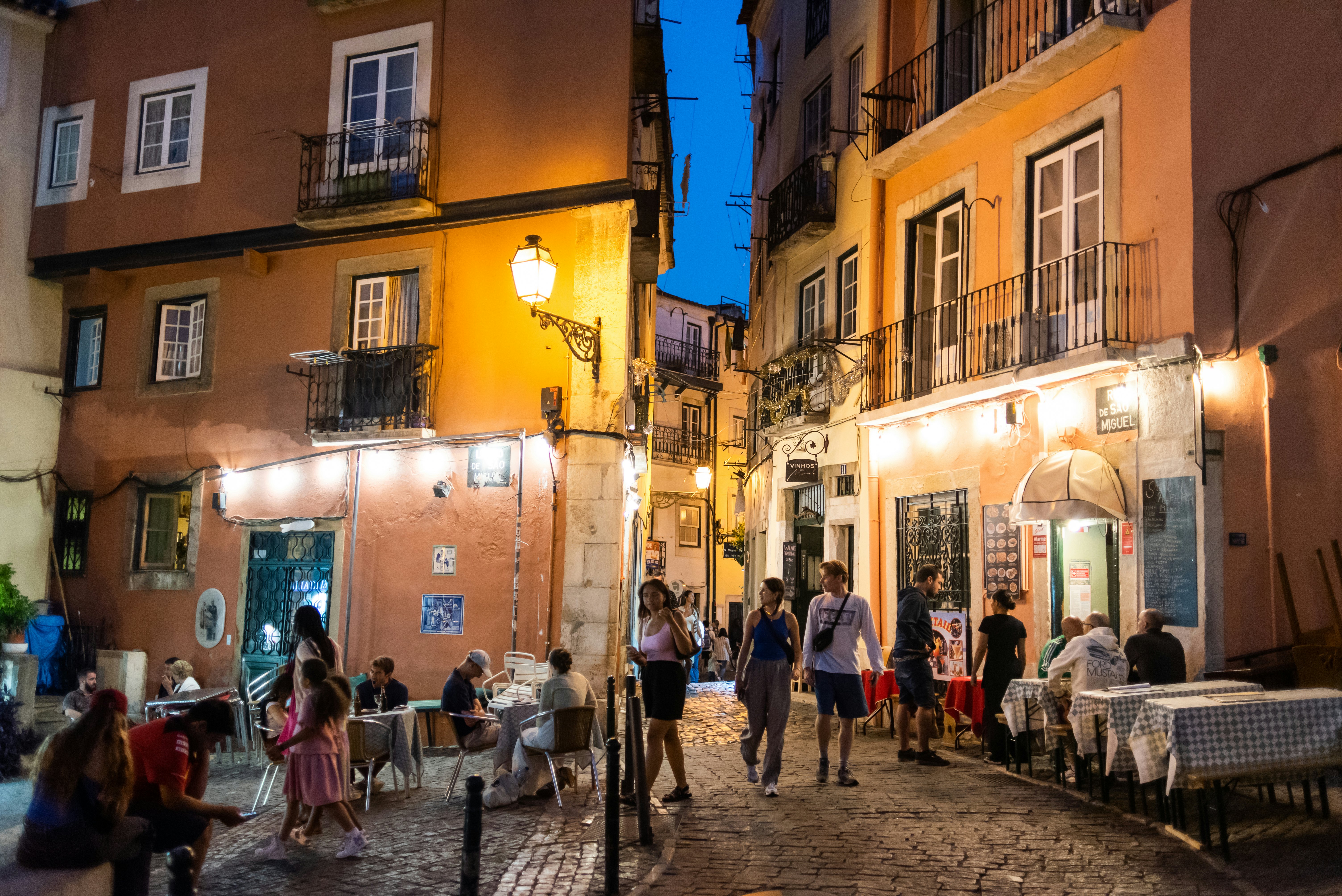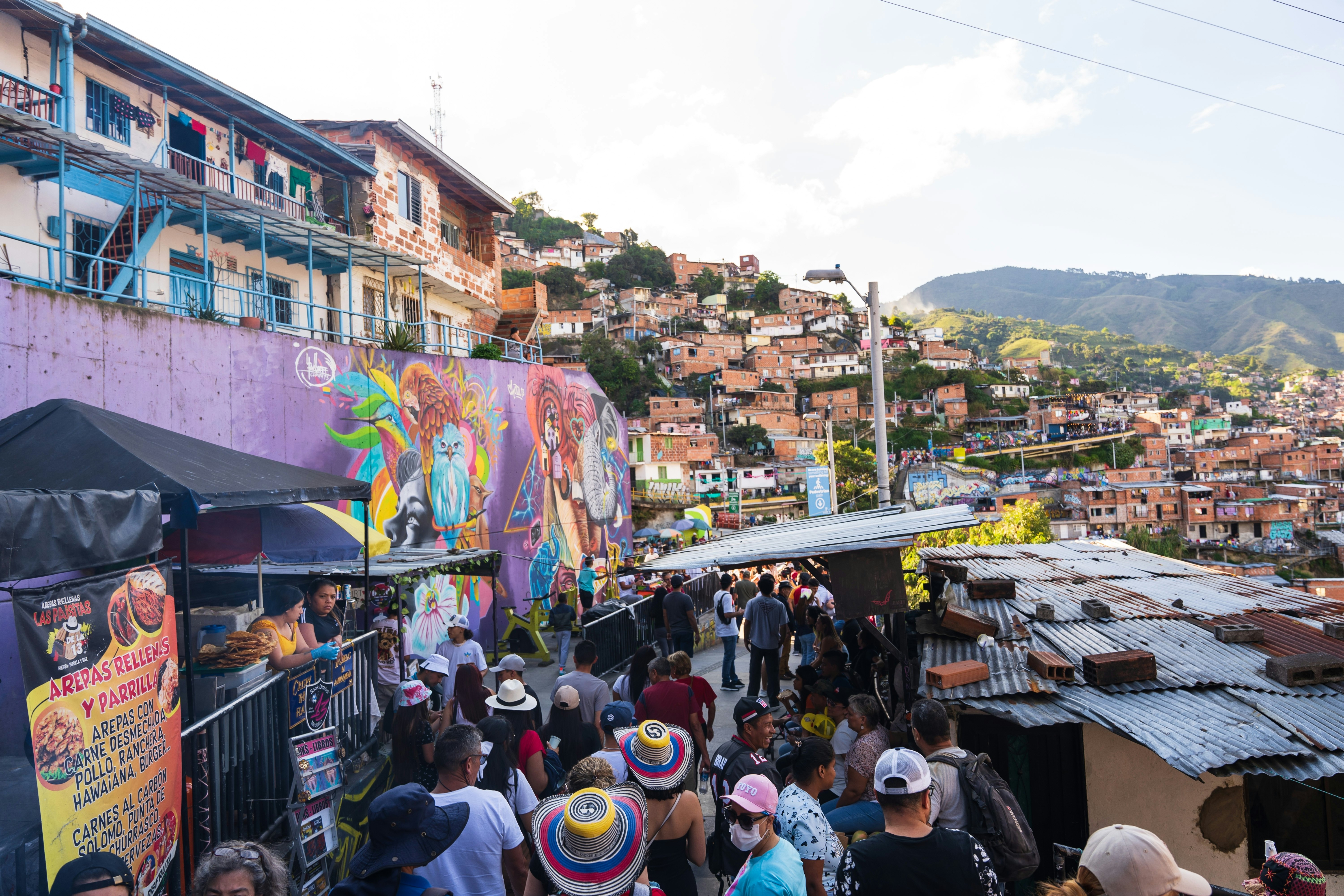

Lonely Planet writer Joel Balsam chooses his best countries for remote working, like Portugal. Kerry Murray for Lonely Planet
Before the pandemic, only a small community of people worked remotely while traveling full time. Yet since that transformative worldwide event, the number of digital nomads has exploded – and continues to grow.
As someone who has spent the better part of a decade working remotely, let me tell you: it’s much easier to be a digital nomad these days. Across the world, the internet is more reliable than ever, and many more destinations now cater to remote workers – making this once kooky idea now commonplace.
Since so many of us got used to working remotely during the pandemic, millions have taken this to the next level by moving their home offices abroad. Many have become freelancers, content creators and entrepreneurs, while others have taken their longtime job on the road. Technically, anyone can become a digital nomad – though it’s much easier for those with passports that enable for widespread visa-free travel.
Still, the term “digital nomad” has acquired some baggage since the idea took off in a big way. Some host destinations accuse remote workers of taxes and showing little concern for the places they alight at to live and work. In popular remote working hubs like Mexico City, Barcelona and Lisbon, some locals blame digital nomads and the Airbnbs they tend to stay in for soaring housing prices. While global inflation, the treatment of housing as a commodity and the general (huge) growth of the travel industry have all contributed to this trend, digital nomads aren’t blameless. International remote workers should understand their impact on the places they stay – and strive to minimize any negative effects.
As you consider your options, keep in mind that certain countries are better for flipping open your laptop and settling in for a spell than others. Here are 10 countries where the digital-nomad life is best.

1. Portugal
Is Lisbon “this century’s Paris”? Young entrepreneurs and artists from around the world are currently congregating on its charming, hilly streets and in its adorable bars. And it’s easy to see why. Lisbon has everything a digital nomad could want in a city: it’s affordable compared to other Western European countries, it has amazing cafes and coworking spaces, it’s safe, and there seems to be an infinite number of meetups and parties.
Digital nomads began flocking to Portugal thanks to the government’s friendly visa policies, which were designed to stimulate the local economy. The policies worked remarkably well – too well, perhaps, as many Portuguese residents say they have been priced out of the capital. Portugal has since curtailed its popular “golden visa” program, and now excludes high-value real-estate purchases as a way to achieve residency.
As Lisbon continues to wrestle with these impacts, consider dialing down your expectations by looking for accommodation that’s priced for locals. Or consider basing yourself somewhere else in Portugal, especially in sleepier towns that could use an investment boost.
2. Thailand
We’re not exactly covering new ground by reporting that Thailand is a fabulous place for digital nomads. The Southeast Asian nation was an early hot spot for the first surge of digital nomads more than a decade ago – especially the northern city of Chiang Mai, which still has a bustling community of remote workers. In between Zoom meetings and catching up on email, you can spend your days eating pad thai and mango sticky rice, and visiting an infinite number of temples. And maybe even use your time to get fit by taking up Muay Thai.
If you’re looking to sip coconuts on the beach while working, Thailand’s islands are also terrific bases for digital nomads. In particular, Kho Pha-Ngan, the island known for its full-moon parties, has become another digital-nomad and wellness hub.

3. Mexico
Mexico is a feast for the eyes – and, of course, for your stomach. Tacos, chilaquiles (fried tortillas), pozole (Mexican stew with hominy, chili, meat and avocado), mole (a rich chili-and-chocolate sauce) – is your mouth watering yet? – tropical fruit, cochinita pibil (slow-roasted pork)…we could go on. Mexico has some of the best food in the world, and it’s also very affordable. Want more? The weather in Mexico is balmy year-round, the culture is fascinating and there are several thriving digital-nomad communities across the country.
If you love endless restaurant options, surprisingly green neighborhoods and constant action, go to the capital of Mexico City. If you’re a beach person, backpacker hub Puerto Escondido in Oaxaca and Playa del Carmen on the Yucatán Peninsula are also popular nomad hubs.
4. Indonesia
Picture yourself on a beach on an island, with mangosteen trees and magenta-painted skies: Bali – Indonesia’s go-to spot for foreign visitors and digital nomads – is a quite a trip. It’s a stunning tropical island with a truly fascinating culture and gorgeous bamboo cabanas that inspired a global architectural style. It’s also the spot for healing, wellness and new-age spirituality.
Yet wonderful as life in Bali is, some visitors haven’t been the best guests – which has prompted the government to ban new hotels and tourists from riding mopeds. There’s also the fact that you’re in a country that criminalizes sex outside of wedlock (though this law is not enforced for foreigners) so it is important to be aware of local laws. Like a good meditation practice, staying mindful of where you are, and the impact you have, is critical if you plan to be a digital nomad in Bali.

5. Spain
If you’re deciding between Italy and Spain, opt for the latter thanks in part to its digital-nomad visa, which allows foreigners to live and work here for up to five years. Spain also has a more entrenched digital-nomad community – especially in Barcelona, where there are endless events to meet others and the type of laid-back vibe only beach cities have (well, as long as you avoid the water pistol–spraying, anti-tourist crowd). You’ll also find terrific weather in Barcelona for much of the year and prices that are lower than those in neighboring countries, especially for local necessities like cañas (beers), vino (wine) and tapas.
Off the mainland and close to Africa, the Canary Islands are a burgeoning hub for digital nomads, particularly Tenerife, which is known for its wine and surfable waves.
6. South Africa
Cape Town is one of the world’s most handsome cities, with lush mountains sloping down to pristine beaches. Such natural beauty alone makes the South African city a great digital-nomad hub. But Cape Town has so much more. An extremely active community of hikers who organize climbs via WhatsApp every day of the week makes this a great place to make new friends. The cost of living is also very low for many – even compared to other African cities. What’s more, those who have a job in Europe will love the GMT+2 timezone.
If you’re in Cape Town, make sure to visit a township like Langa, where locals organize informative tours. And plan time to get out of the city to see penguins, go surfing, do some wine tasting and to go on safari in the eastern part of the country.

7. Colombia
Colombia is a welcoming country, especially in Medellín, the country’s primary digital-nomad hub, which has terrific cafes and coworking spaces in the principal expat neighborhoods of Poblado, Laureles and Envigado. While there, make a trip up to La Comuna 13 barrio and consider volunteering.
If you’re in the mood for seaside chilling, Colombia is a more affordable alternative to Costa Rica, with a gorgeous coastline that features the vibrant Afro-Colombian culture of Cartagena, and the multi-day Ciudad Perdida trek. Internet connection in the north, however, isn’t as reliable.
8. Georgia
Say “cheers!” to this Caucasus nation, where archeologists unearthed the world’s oldest wine jars. Indeed, there’s plenty to drink to (and in) once you arrive in this digital nomad–friendly destination. For starters, citizens of more than 90 countries can enter Georgia visa-free for up to a year.
The international hub is the capital, Tbilisi, where you’ll find marvelous monasteries, awesome cuisine (khachapuri is what carb dreams are made of) and a collection of hip cafes and clubs (Fabrika is always a good place to start).
If you’re looking for sea access and a chiller vibe, base yourself in Batumi. Or head south of the border to Yerevan, the capital of Armenia – itself a growing hub for entrepreneurs.

9. Bulgaria
Every June, hundreds flock to a tiny mountain town in Bulgaria for Bansko Nomad Fest, the world’s largest festival for digital nomads. Given its small size, Bansko is an unlikely draw – but it all becomes clear when you visit. There’s fresh mountain air, more coworking spaces than in many large cities and a thriving digital-nomad scene that makes it easy to make new friends. Most nomads base themselves here in the summer around the festival, though winter is a great time to visit if you love snow sports.
Another good option in Bulgaria is the capital Sofia, an up-and-coming getaway destination.
10. Vietnam
Hype is building in the digital-nomad world about Vietnam, in particular the beach cities of Danang (a great option for surfers) and Hoi An. Firmly situated on the backpacker trail, Vietnam hasn’t attracted as many digital nomads as nearby Thailand – perhaps since it principal cities of Hanoi and Ho Chi Minh are so hectic. Yet Vietnam is one of the most affordable countries in the region, with some the best cuisine around (which goes well beyond banh mi and pho) and fast internet speeds.

What tools do digital nomads need?
First, you’ll need a job that allows you to work remotely. Common income streams include graphic design, programming and copywriting; many entrepreneurs can also work from anywhere. Next, you’ll need a laptop or a tablet to work on. Everything else is just gravy – though you may want a few more comforts than if you were simply on a quick vacation.
Can I work from anywhere? Or do I need a digital-nomad visa?
If you’re from a country with a passport that gives you easy or visa-free entry to many countries, immigration authorities probably won’t bother you if you stay for a few months on a tourist visa. Citizens of other countries may face more questions at the border, especially if they have to apply for a visa beforehand.
In the last few years, dozens of countries have attempted to bring digital nomadism out of the shady realm of tourist visas by introducing their own digital-nomad visas. However, these visas can be bureaucratic and expensive, and only make sense if you plan to stay in a country for longer than a tourist visa will allow.
If you’re traditionally employed and want to work “at home” from another country or even another state, you should first get permission from your company’s accounting department. Laws about doing business abroad often predate the internet, so countries may be able to tax you and your company if they find you working on their soil. That said, many companies will still allow you to work in another country for under 90 days since the risk remains low for short stays.














